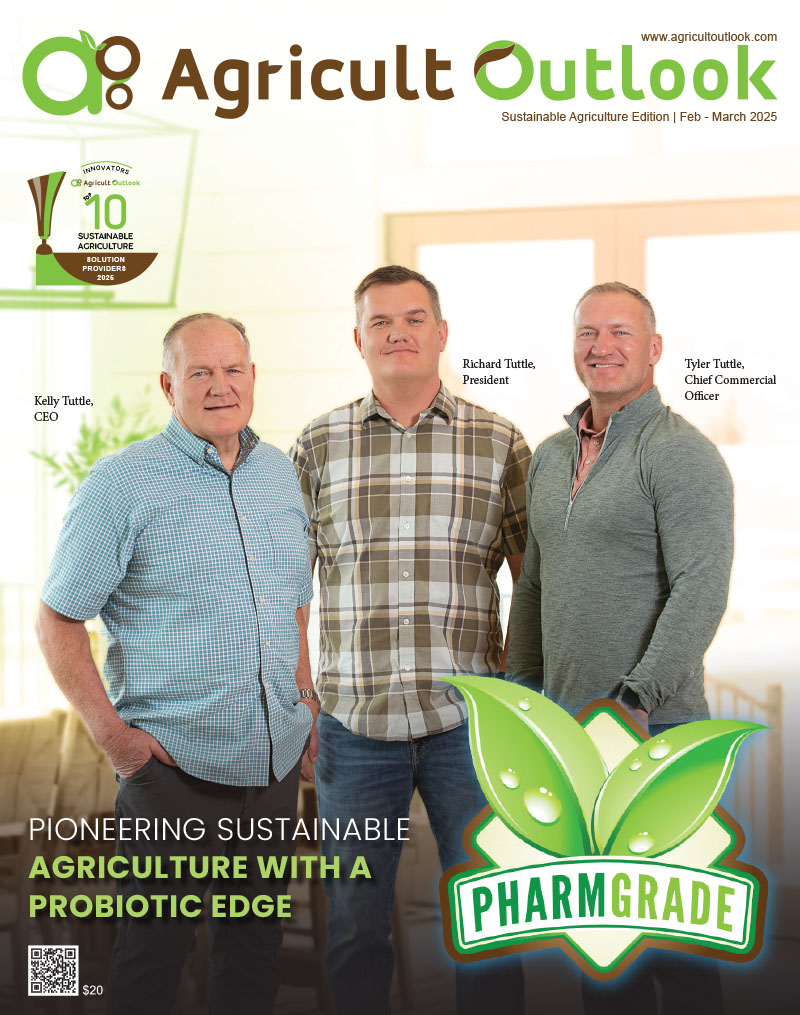Mars, Incorporated, a global leader in pet care products and services, confectionery, snacking and food and the maker of some of the world’s most-loved brands, has officially announced a multi-partnership effort to provide financial incentives at the disposal of farmers as they implement regenerative agriculture practices all across North America,
According to certain reports, the partnerships in question will encourage wheat, corn, and rice farmers in select regions of North America to implement regenerative agriculture practices, contributing to scope 3 carbon reductions, also doing so as a part of the Mars Net Zero Roadmap.
More on the same would reveal how they will ensure that farmers are well-equipped in the context of implementing regenerative agriculture practices like cover crops, reduced tillage, and extended crop rotations, with an aim to deliver benefits such as increased yields, lower greenhouse gas (GHG) emissions through reduction and carbon sequestration, improved water quality, enhanced soil health, and greater biodiversity in the covered areas. Not just that, once implemented, the results of the programs will also be tracked using comprehensive measurement, monitoring, reporting, and verification systems.
The organizations recruited to partner Mars in this journey include ADM, The Andersons, Inc., Riceland Foods, and Soil and Water Outcomes Fund, led by Royal Canin USA and Mars Petcare US, Inc. As for the areas they are likely to cover, that list includes cities like Arkansas, Iowa, Kansas, Minnesota, Missouri, Nebraska, Ohio, Michigan and Ontario, Canada.
Talk about each partnership on a slightly deeper level, we begin from ADM partnership with Royal Canin USA and Mars Petcare US, Inc. Here, the idea is to leverage ADM’s broad and ambitious approach towards regenerative agriculture, bringing together partners to support outcome-based farming that promotes better soil health, as well as farming business development.
Furthermore, the partnership will identify and account for environmental benefits, including improved water quality, soil health and biodiversity. All in all, it aims to promote practices such as reduced tillage and cover crops on more than 100,000 acres in 2024, supporting outcomes like reduced fertilizer use and an improved carbon footprint.
Next up, we have The Andersons Partnership with Mars Petcare US, Inc. In essence, Andersons’ groundbreaking corn procurement program will support farmers across a large region. Alongside that, Mars Petcare US, Inc. will assist in enrolling farmers in the program, providing technical support and reporting on key metrics.
“At Mars, we recognize that an important part of achieving our climate goals is addressing the environmental footprint of our ingredients. Our commitment to regenerative agriculture is a key component of our broader sustainability strategy. These partnerships reflect our dedication to reducing our environmental impact, supporting farmer livelihoods, and helping to ensure a resilient supply chain for the long term,” said Jon Peattie, Senior Vice President of Commercial at Mars Petcare US, Inc.
Then, there is Riceland Foods Partnership with Royal Canin USA and Mars Petcare US, Inc. This particular partnership provides an interesting follow-up to the launch of Riceland Carbon Ready™ program, which was announced back in 2022. You see, in partnership with Arva Intelligence, the program supports the cooperative’s farmer-members while they implement and maintain sustainable on-farm practices and holistically care for the land. Markedly enough, the program’s annual coverage is more than 10,000 acres across the regions during 2024.
Rounding up highlights is the Soil and Water Outcomes Fund partnership with Royal Canin USA. This one is, by and large, focused on relaying financial incentives directly to farmers who begin or expand on-farm conservation practices that yield positive environmental outcomes, such as carbon sequestration, emission reductions and water quality improvement. Beyond that, these voluntary, climate-smart practices include reduced tillage, cover crop implementation, extended crop rotations, and fertilization management.
These new partnerships build upon Mars’ recent report, which revealed that the company has successfully achieved record 8% GHG emissions reduction, doubling its total GHG reduction to 16% reduction across its full value chain and delivering its largest single year reduction in GHG emissions against its 2015 baseline.







